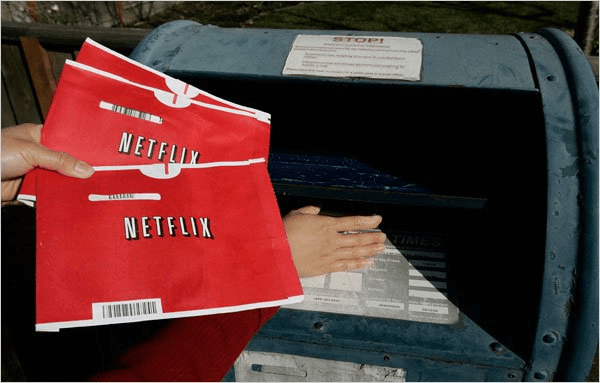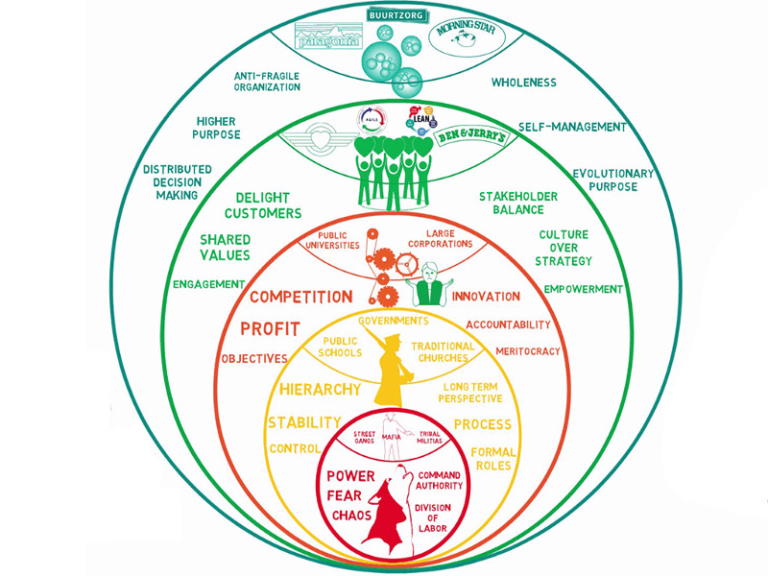What are employees to a company? Are they just a means to an end — serving shareholders or customers? Or are they an end in themselves? HR people and managers are often used to referring to their company and the team they recruit for as a “family”. The metaphor is common enough. Yet they sometimes choose to dismiss some of their employees. They make recruiting errors and have to correct them. They have ‘resources’ they no longer need and have to let go. The family metaphor obviously has severe limitations. The reality of hiring and managing talent is quite different from family life.
A new book by Patty McCord, the former head of HR at Netflix, argues that HR professionals must use the sports team metaphor instead and embrace the transient, project-based nature of all professional relationships. In her recently published book, Powerful, she argues that traditional HR should undergo a revolution, create a culture of “freedom and responsibility” where all workers are “powerful” enough to work wonders, and embrace “radical honesty” in the workplace. She insists all managers should learn to “say good-bye” to their employees.

Should a company pretend it works like a family?
In modern families the relationships between parents and children are essentially durable and not necessarily chosen. And they involve unconditional love — love that’s not conditioned by performance. Though not every parent-child relationship is durable and loving, it is now a universal trope to picture family relationships that way.
Conversely, in companies employer-employee relationships are essentially conditioned by production and performance. And they are no longer essentially durable. These relationships are increasingly limited in time. Very few employees see themselves working at only one company for their entire careers. Very few employers can afford to promise their employees complete job security: not only do they cater to the short-term interests of the company’s shareholders first, but they also see they will need different talents in an increasingly digital and faster-changing economy.
Yet almost every employer-employee relationship involves a game of make believe. Most employees pretend they want to ‘grow’ in their company forever. Most employers pretend the relationship is for life. It’s a bit like marriage: although statistics show marriages have a limited life expectancy, every couple wants to believe theirs is for life. Employers and employees rarely believe their relationships are for life. But they feel they kind of have to pretend.
However more and more companies no longer believe in pretending. HR management is being transformed by the notion that every company-worker relationship is essentially transient by nature and project-based. Effective recruiting and talent management depend on understanding the need for increased mobility. More and more workers believe they grow more resilient if they learn continuously on different projects with different companies.
Netflix, McCord and many startups offer a radically new vision of HR
Patty McCord was Chief Talent Officer of Netflix for 14 years. In Powerful: Building a Culture of Freedom and Responsibility she argues that most companies have it all wrong when it comes to recruiting and managing talent because, she writes, high performance requires complete freedom, transparency and responsibility. When working for Netflix, she helped CEO Reed Hastings create the renowned Culture Deck which made Netflix’s HR principles and management style world famous. Facebook COO Sheryl Sandberg once said of Netflix’s deck that it “may well be the most important document ever to come out of the Valley”.
Patty McCord advocates for “radical honesty” in the workplace. She insists that managers should learn to “say goodbye” to employees who are no longer in a position to meet the fast-changing needs of their company. All employees should be hired as “fully formed adults”. Therefore they will need no watching and controlling. McCord goes so far as to accuse the old pillars of twentieth-century HR of being a gigantic waste of valuable resources: annual performance reviews, retention plans, etc. are useless when you deal with fully formed adults. “Being transparent and telling people what they need to hear is the only way to ensure they both trust and understand you”.
Over the last few years, Netflix’s now world famous culture deck was downloaded more than 15 million times. The deck lists a series of fundamental practices and ideas that sustain the company’s culture of innovation. These include:
- Open, clear and constant communication about the work to be done and the challenges being faced;
- Radical honesty in the workplace because adults are equipped to hear the truth;
- The CEO is the creator and guardian of company culture;
- All actions are based on what’s best for the customers and the company…
Building a team and saying goodbye to its players
McCord insists the family metaphor in HR is fallacious. Companies do not raise families. They don’t ‘owe’ their employees the promise of long-term development. She argues that the sports team metaphor is much more appropriate. HR professionals need to train their teams, spot growth potential, acquire new talent on a regular basis, get rid of low performers when necessary so as to maximise the team’s likelihood of winning games.

Netflix has required different talents at different periods of its twenty-year history. When it made its move from DVD shipping to online streaming, the company suddenly needed many new technical people it didn’t have, and it had to let go of a lot of the people it had had until then. “Have the right person in every single position” is one of McCord’s essential HR mottos. It means you have to let people go when their skills no longer match your needs. “The right person in every single position” also implies that retention is not a relevant metric by which to evaluate team-building success.

Letting people go isn’t easy: “it’s hard enough letting people go who aren’t performing. It’s even more difficult to let people go who have done a great job”. But it is necessary for the company and the people too. To keep learning new skills, employees must regularly take new challenges. That’s how they cultivate their growth mindset and remain resilient. Working for Netflix is not a lifetime engagement (like marriage used to be), but a temporary challenge that helps people (and the company) grow. “If I hire people to rebuild my garage, when they’re done I don’t need them to rebuild the back of my house”, writes McCord.
Ironically McCord was let go after 14 years of service because she too was no longer needed. The Netflix sports team no longer needed McCord as a player. As explained in this FastCompany article, “while at Netflix, McCord was tasked with telling hundreds of employees when it was time to “move on.” In 2001’s dot-com bubble burst, followed by the 9/11 attacks, Netflix laid off a third of the company’s 120 employees. The company’s inner-sports team-like workings meant that even hardworking people got cut and “players” could change from time to time without it supposedly getting personal”. “McCord also lost her job because she worked herself out of one. She came to the company to create an enviable culture — which she did — and she left it sustaining and abled and in the end, there was really no need for her anymore at Netflix. She had played a good game, but the team no longer needed her as a player”.
Viewing workers as “players” in a sports team is one of the reasons why Netflix has always believed in paying its employees well. They are encouraged to interview regularly and find out how much Netflix competitors would be willing to pay them. Most Netflixers have flourishing careers after they leave Netflix. “They have a great résumé because they’ve worked for you”. By remaining ‘desirable’ for other employers and making sure they have control over their careers, employees are supposed to feel more confidence at work, “confidence to speak up more, to take more risks, to take on more and more responsibility”. “Just imagine if you had an organization full of people who know they have power”.
But what does it mean for companies that all relationships are transient by nature?
The promise of professional stability and a salaried paycheck were the essential tradeoffs of the age of mass production. Division of labour and alienation at work — nobody has ever illustrated that better than Charles Chaplin in Modern Times — were made acceptable to the workers by the promise of constant enrichment and provable solvency. Workers could get access to banking credit (an innovation that owes much to the salaried paycheck), buy houses and cars, send their children to university… Yes work was boring and repetitive but it came with wealth, stability, leisure time, prestige, political representation via powerful unions, etc.

The disintegration of the twentieth-century mass economy has destroyed the essential tradeoff of that age. Workers can no longer find boring work acceptable because they are no longer promised wealth and stability. They find division of labour less tolerable. Furthermore in an economy that requires new skills everyday, learning new skills has become more critical. Automation, software and the rise of amateurs connected on platforms are transforming the nature of work and the weave of professions. Workers need to learn to become resilient. Fall and stand back up. Fail and try again. Iterate.
To remain “employable” workers need to prove they are agile and resilient. They know they will be more resilient — and employable — if they work on lots of different “projects”. They want to be autonomous at work because they know they are their own startups, as Reed Hoffman explained a few years ago in The Start-Up of You. That’s why many more workers decide to work for themselves and become freelancers. After all, isn’t that the best way to learn continuously and grow resilient? Freelancers also get to enjoy flexible work, less surveillance and more freedom at work on top of it.
Patty McCord’s HR vision challenges the notion of the firm as described by economist Ronald Coase. For Coase the firm existed because it made sense to do internally what was too costly to do on the market. The “nature of the firm” depended on “transaction costs”. It makes economic sense to hire a worker because if you have to recruit, train and pay new independent workers everyday (or for each of your “projects”), it would jeopardize the reliability of your production process. But the digital revolution has made some of those transaction costs lower. New work platforms make it easier to hire freelancers for different “projects”.
So if most professional relationships are project-based and transient by nature… then why hire at all? If it doesn’t make sense to grow the talents you already have because it’s best to hire the right skills on the market for all new jobs, then why do they have to be salaried workers at all? But maybe the difference between being an employee and being a contractor is not what it used to be. The line between the two is increasingly blurring because all relationships are more transient. The nature of the firm is changing.
So, can’t the company be a family, really?
IsPatty McCord’s the only possible vision of the firm that can be offered? It seems it is based on one particular choice of priority stakeholders, one definition of the firm that is in fact not universal. For McCord firms have the sole purpose of serving their customers and every other stakeholder (managers, workers, shareholders) must be at the service of customers. But firms are not necessarily defined that way. Some are designed to serve their own people. Others simply cater to shareholders.
Historically families have been economic units of production for a very long time. Family business is the oldest and, still today, the most common model of economic organisation. In fact a large number of businesses throughout the world can be regarded as family businesses. “Based on research of the Forbes 400 richest Americans, 44% of the Forbes 400 member fortunes were derived by being a member of or in association with a family business” (Wikipedia). The economic prevalence of this kind of business is often underestimated because they aren’t easy to study: they are less subject to financial reporting requirements, and little information is made public about financial performance.
As the old industrial model is being increasingly challenged by the new economy, we turn again to the family model as a source of wealth creation and employment, as a model well suited to the economy that replaces mass production and mass consumption. Large publicly traded companies run in a bureaucratic manner by “organisation men” are increasingly challenged and criticised. We look to the family model with wistfulness and hope.
Frédéric Laloux argues in Reinventing Organizations that the efficient machine organisation of our modern age is bound to be replaced by newer more advanced forms of organisations that see workers not at efficient cogs but as whole beings evolving in an organic ecosystem. “Organizations are moving forward along an evolutionary spectrum, toward self-management, wholeness, and a deeper sense of purpose”, he writes.

In truth companies could very well be like families. There are multiple stakeholders in each company: employees, shareholders, customers, managers… users, freelancers, providers… Each company produces its own culture derived from its priority stakeholders. For Netflix and a lot of digital firms today the most important stakeholder is the customer (the user). Every work relationship is necessarily transient by nature and based on effectively serving the customer. Employees are paid well and treated fairly, but they are not meant to be durable stakeholders. In a culture that’s still dominated by the model of the family business, it may seem somewhat brutal.
But as the lines between what’s inside and what’s outside organisations are increasingly blurring, their next evolutionary step might be to consider extended families / communities in their ecological context, in a “systems perspective” — where one part of the system cannot be understood in isolation from the other parts. A family is more than the sum of its parts. A family cannot be contained within one organisation. In that perspective, we won’t have to learn to say goodbye to coworkers but we’ll have to learn to nourish long-lasting relationships in larger communities and ecosystems.
A lire aussi sur la dynamique humaine

What If Women Learned To Ask?
According to the World Economic Forum’s Global Gender Gap Report 2017, the gender gap widened slightly in 2017 after a decade of progress. The (global) average

Les Communautés de Pratiques : nouveau levier de création de valeur
Ou comment faire du collaboratif un tremplin pour mobiliser les équipes au service des objectifs stratégiques de l’entreprise Bousculées par des marchés chahutés et face

